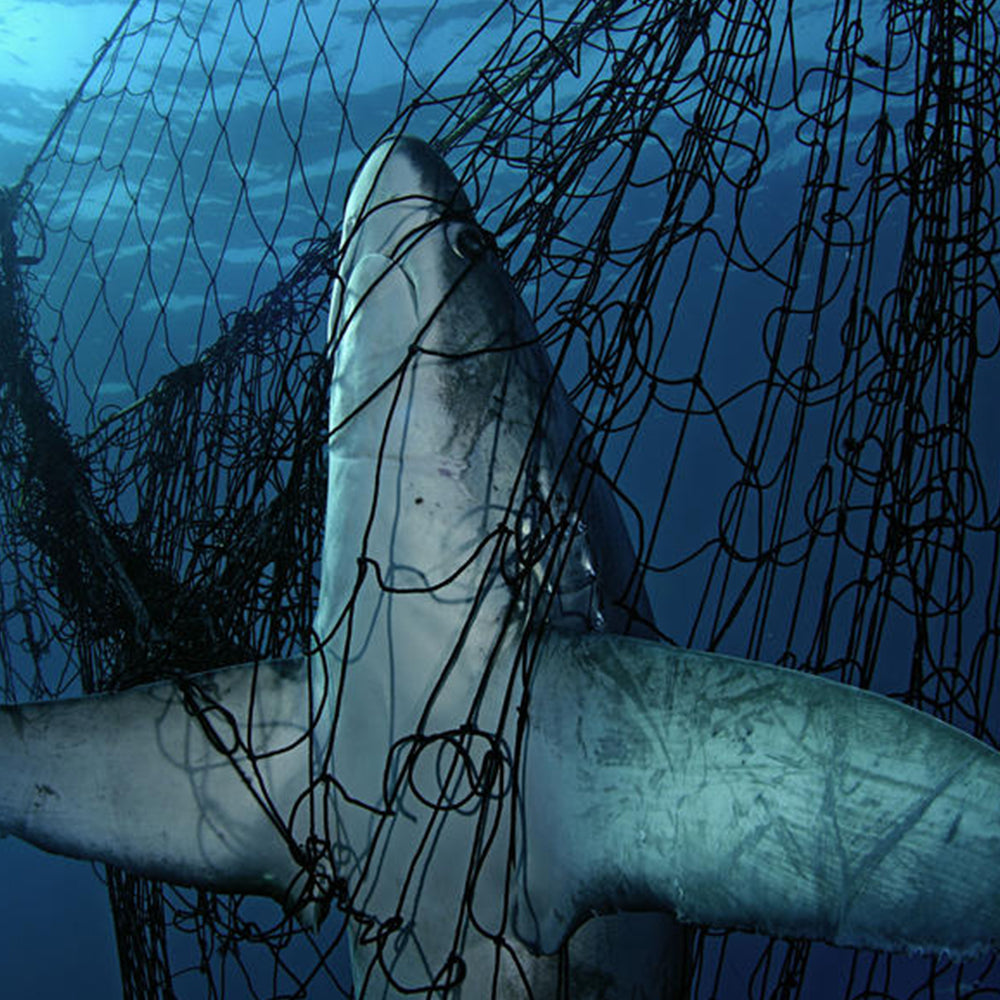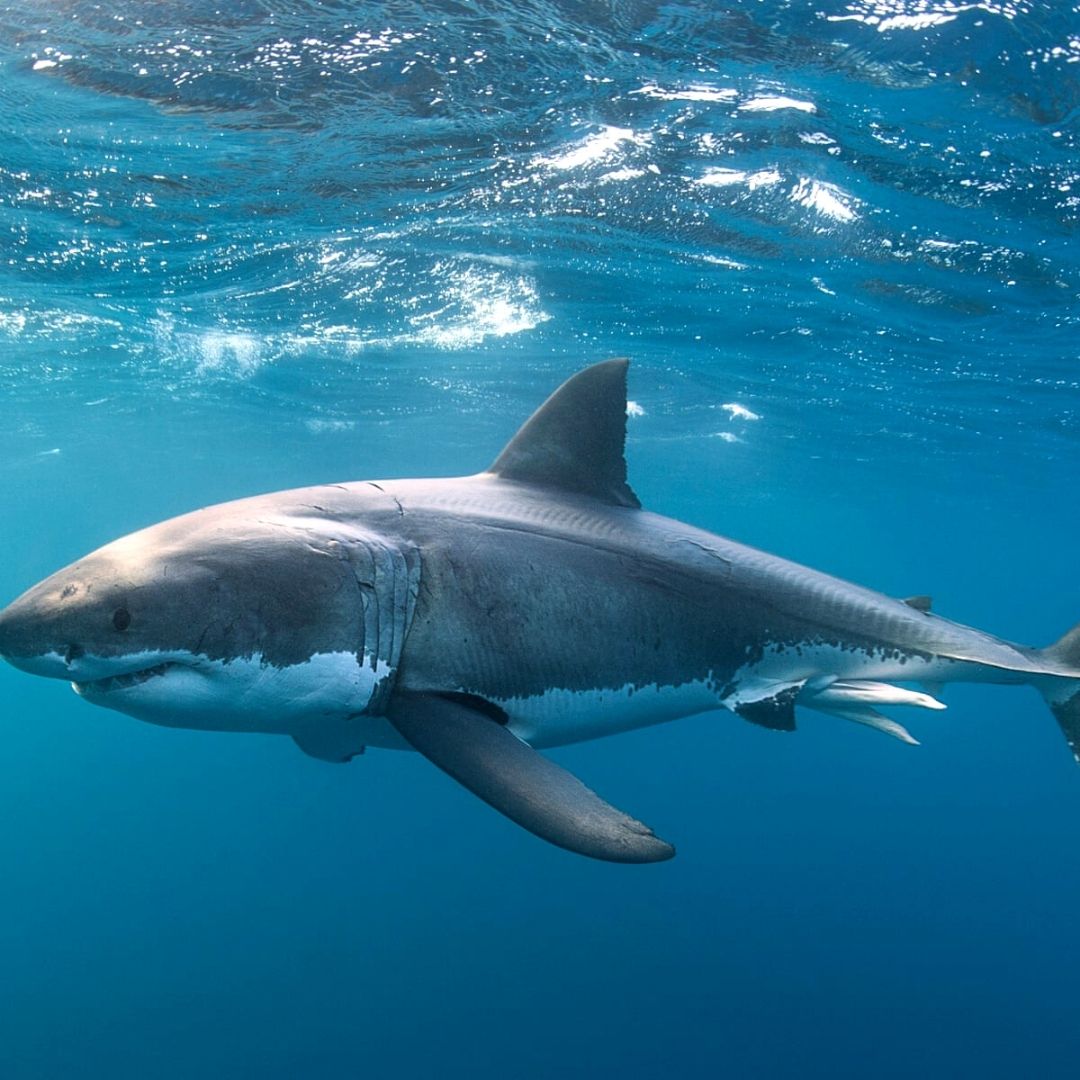July 14th is Shark Awareness Day! Shark Awareness Day is all about shifting attitudes around sharks and boosting awareness of these wonderful creatures and everything they do for our ocean ecosystems.
For many of us, movies like ‘Jaws’ shaped our perception of sharks growing up. But the depiction of sharks as monstrous, blood-thirsty killing machines couldn’t be further from the truth! Sharks are fascinating creatures, and they play an integral role in keeping our oceans healthy — but they’re facing serious trouble. Since 1970, shark populations have declined by 71 per cent due to overfishing.
This Shark Awareness Day, let’s celebrate these beautiful, irreplaceable oceanic animals and do everything we can to bring about positive change!


Why Are Sharks So Important?
With over 500 known species, sharks are found everywhere in our oceans — from the deep sea, to coral reefs, to coastal areas — even under Arctic ice! They’ve roamed the oceans for over 400 million years, practically unchanged.
As apex predators, sharks help maintain the balance of life in the sea by feeding on mid-sized predators. Fewer sharks in the ocean results in more plankton and smaller fish, which creates an unhealthy competition for food and disrupts the entire food chain. Without sharks, mid-sized predators would overpopulate and kill off small reef fish species.
In this event, precious ecosystems like the Great Barrier Reef would decline quickly, along with its $6 billion tourism industry and 64,000 jobs that rely on a healthy reef!


Many Shark Species Are Facing Extinction
Sadly, in almost half a century, we’ve lost roughly 71 per cent of our global shark and ray populations. The oceanic white-tip, for example, was once the most common shark in tropical waters. Now, it’s critically endangered, and one step away from complete extinction.
So, why on Earth are our shark species declining so rapidly? One word: overfishing. If you watched Seaspiracy recently, like we did, you were probably shocked by some of the facts surrounding commercial fishing and bycatch.
It’s estimated that 100 million sharks are killed every year from enormous driftnets, longlines and trawling — both deliberately and unintentionally. Most are captured for their meat, oil, and fins. Shark fins can sell for $1,100 per kilogram to make shark fin soup.


Amazing Sharks Found In Australian Waters!
We have roughly 180 different shark species around Australia! According to Ocean Life Education, some of these include: the Great White, Port Jackson, Thresher, Zebra Shark, Tiger Shark, Tasselled Wobbegong, Whale Shark, Oceanic Whitetip, Blacktip Reef, Grey Nurse, Bull Shark, Bronze Whaler, Great Hammerhead, Blind Shark, and the Pygmy Shark.
Before you get a little bit creeped out, remember that on average, just one person per year is killed in a shark attack in Australia. To put this in perspective, approximately 10 people are struck by lightning every year!
The fact of the matter is that the ocean is home to all sorts of wildlife that may unintentionally harm us. Instead of fearing sharks, we must respect their home and understand the immense value that they bring to our oceans.


What Can I Do For Shark Awareness Day?
As individuals, it’s hard to know what role we play in this complex issue! On July 14th, we need to spread the word about sharks via #SharkAwarenessDay — it could be a photo, video, infographic, a fun fact, or a picture of you attending a beach clean-up.
If you’re itching to get involved in shark protection campaigns, we recommend that you volunteer with Sea Shepherd or sign a petition by Greenpeace Australia Pacific and the Australian Marine Conservation Society!
If we’re serious about protecting sharks from extinction, we need a collaborative approach from governments (to make and enforce laws), industries (to drive sustainable fishing practices), scientists (to offer solutions based on science), and lastly, NGO’s and charities (to drive positive change).
“At the end of the day, sharks can live on this planet without us, but we cannot live on this planet without them” — Jeff Hansen, Sea Shepherd Australia's Managing Director.
Lastly, if you’d like to learn more about commercial fishing, bycatch, and the shark finning industry — we highly recommend watching Seaspiracy.
Keen to help all marine life? Check out these blogs for more ways to get involved.



